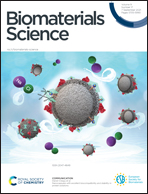Bacteria-mediated cancer therapies: opportunities and challenges
Abstract
In recent years, cancer therapy strategies utilizing live tumor-targeting bacteria have presented unique advantages. Engineered bacteria have the particular ability to distinguish tumors from normal tissues with less toxicity. Live bacteria are naturally capable of homing to tumors, resulting in high levels of local colonization because of insufficient oxygen and low pH in the tumor microenvironment. Bacteria initiate their antitumor effects by directly killing the tumor or by activating innate and adaptive antitumor immune responses. The bacterial vectors can be reprogrammed following advanced DNA synthesis, sophisticated genetic bioengineering, and biosensors to engineer microorganisms with complex functions, and then produce and deliver anticancer agents based on clinical needs. However, because of the lack of knowledge on the mechanisms and side effects of microbial cancer therapy, developing such smart microorganisms to treat or prevent cancer remains a significant challenge. In this review, we summarized the potential, status, opportunities and challenges of this growing field. We illustrated the mechanism of tumor regression induced by engineered bacteria and discussed the recent advances in the application of bacteria-mediated cancer therapy to improve efficacy, safety and drug delivery. Finally, we shared our insights into the future directions of tumor-targeting bacteria in cancer therapy.



 Please wait while we load your content...
Please wait while we load your content...